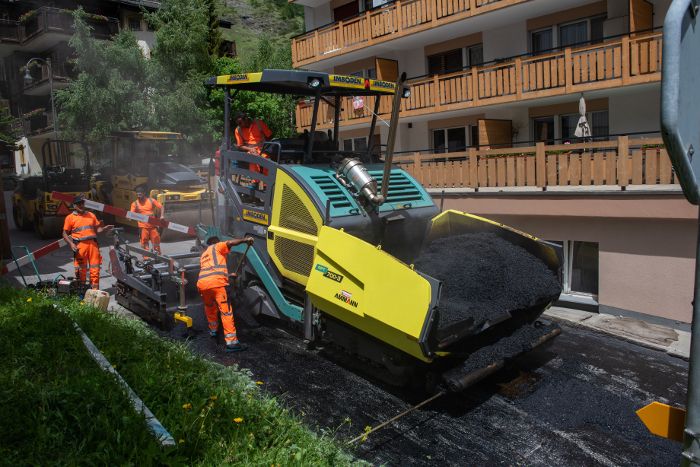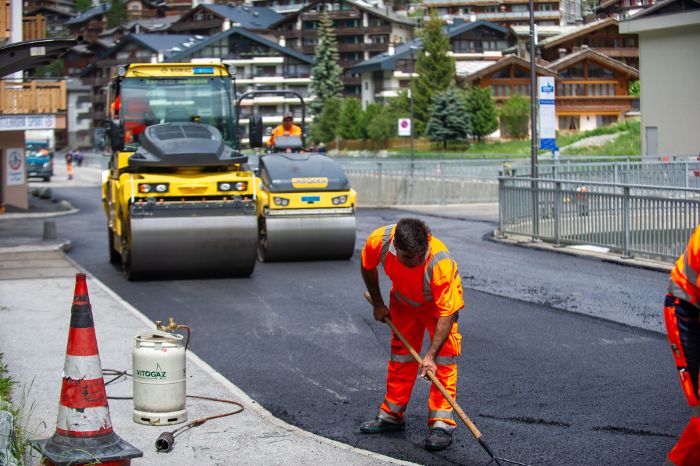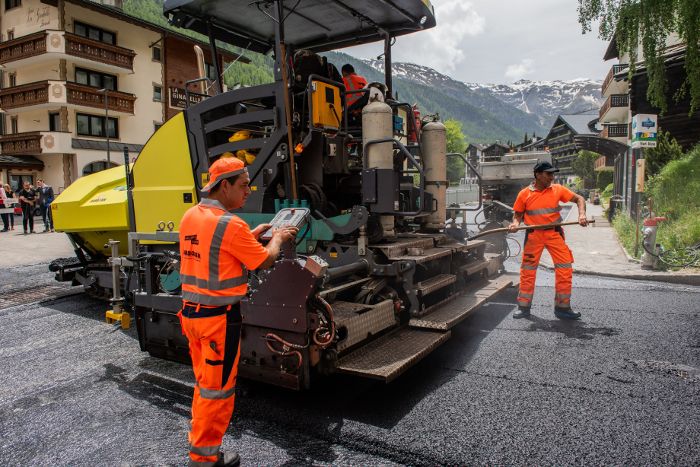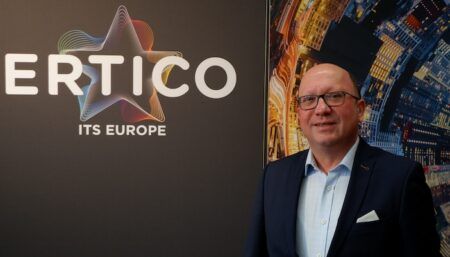One of the world’s leading ski resorts, the town of Zermatt in Switzerland, has taken a ‘green’ approach to road resurfacing and is trialing new technology from a Scottish company that uses waste plastic to create an environmentally-friendly pavement.
A fossil fuel-powered car-free town with incredible views of the Matterhorn mountain, Zermatt is one of the world’s most iconic travel destinations. For the pilot project, one of the town’s major road junctions that is used by its electric-powered e-buses has been re-surfaced using new technology from award-winning Scottish company MacRebur, which allows waste plastic that would otherwise have gone to incineration or landfill to be used in the asphalt mix. Plastics consumption worldwide is increasing, which results in the amount of waste. To meet their environmental ambitions, the Swiss Government and public authorities, along with plastics manufacturers, and the waste and retail industries, are investigating environmentally and financially suitable options for recovery and disposal. The project in Switzerland is being led by Kirk Tinham, of clothing company Tinham & Co GmbH, with the asphalt produced by Ulrich Imboden AG and laid by Zermatt’s public works department.

“I first heard about MacRebur from a friend I had surfed with whilst living in Bali several years ago,” explained Tinham.“Plastic pollution is a big topic among the surfing community, so we agreed that MacRebur was a great idea. I recognized that this could be a great product for the Swiss market and took the initiative to call MacRebur to enquire about distribution and several weeks later my wife and I were on a plane headed for Scotland to meet the team. Although Switzerland has a fantastic recycling collection system in place, more than 80% of the collected waste plastics are incinerated rather than repurposed. With the Swiss being proud of their fresh alpine air, this practice is particularly unpopular, but with MacRebur we have the potential to make use of the efficient collection system and reuse the waste plastic to create a greener outlook for the future.”
MacRebur’s CEO, Toby McCartney, commented, “We hope this road will be the first step towards opening our first factory in Switzerland and it is an excellent opportunity to show the performance of our roads. Temperatures in Zermatt range from below minus 15 in the winter to up to around 30 degrees in summer, however, as our roads contain plastic, they are more flexible. This means they can cope better with the contraction and expansion caused by changes in the weather, reducing cracks and potholes. Our roads have no difference in appearance to regular asphalt, but by using our technology, Zermatt is able to offset some of its plastic waste generation. We are working across the world to set-up factories in Europe, America and beyond to allow plastic waste to become part of sustainable local circular economies. We are very proud to be working in Switzerland, a country known for its cleanliness, and the fact that our product has been used there shows that we are a high-quality choice for better roads everywhere.”






